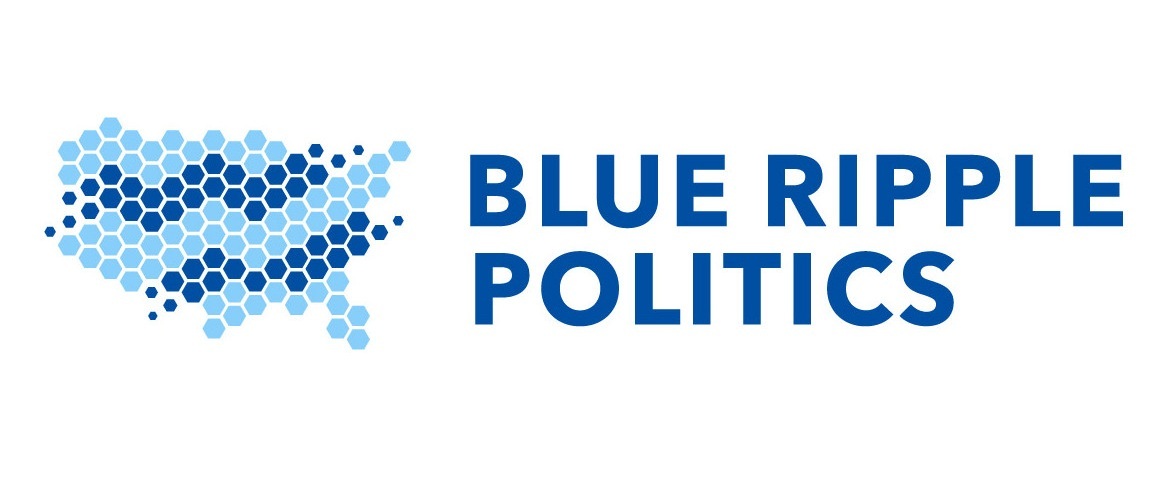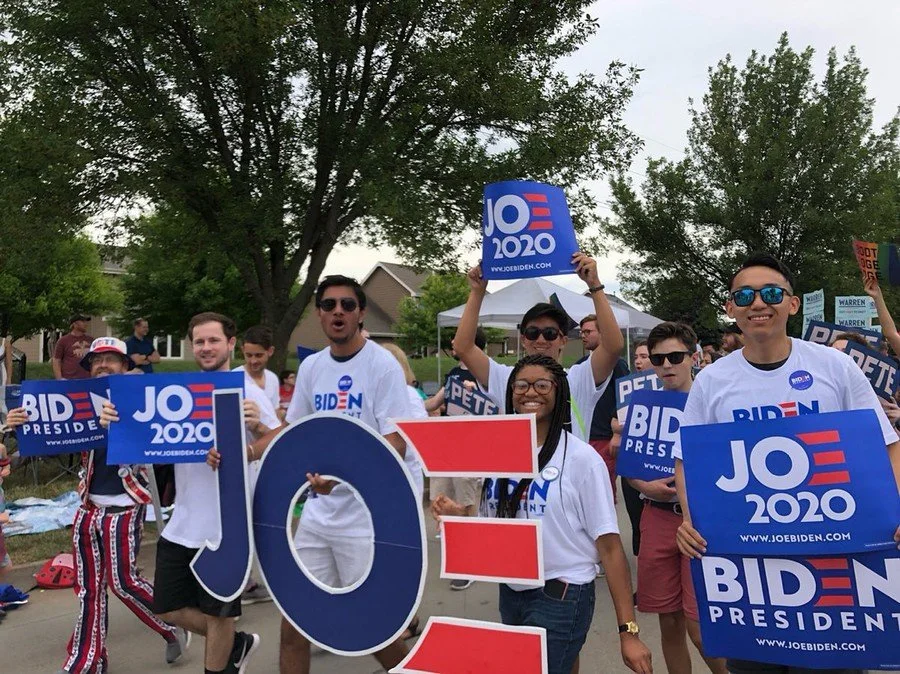We’ve written before about how campaigns are a great way for students to get introduced to politics and exposed to future opportunities in and around government. (If you’re in high school or college, check out our student resources page to learn more!) But many students can’t access these opportunities because they’re unpaid.
That’s why we are excited to introduce you to Blue Future, the nation’s largest youth-led, progressive political action committee. Founded in 2018, Blue Future provides students with paid opportunities to work on Democratic campaigns across the country and trains them so they can continue their careers in progressive politics. (Blue Future also supports an NYC-focused internship program, Rep The Future, which we profiled here.)
We spoke with Nick Guthman, Blue Future’s Co-Founder and Co-Executive Director, to hear about the group’s origins, activities, and future plans. We encourage you to support them via the handy ActBlue link below, and also pass this post along to students who might be interested in joining their fabulous programs.
Nick’s conversation with Blue Ripple’s Frank David has been edited for length and clarity.
How did Blue Future get started with helping students get involved in Democratic campaigns?
Blue Future was started in 2018 in the wake of Trump’s election because a lot of young people wanted to get involved and didn’t have a political home to go to. At that time, several youth-oriented groups focused on voter registration, but very few concentrated on working directly for Democratic candidates. We thought there was a great opportunity for us to get involved in that space. And since then, we’ve remained largely focused on the same goal: being of service to diverse young people across the country who want to get involved with and support progressive candidates for office.
Before Covid, we partnered with youth-led organizations like college and high school chapters of College Democrats, Sunrise Movement, or Planned Parenthood to identify and help satisfy their specific needs related to supporting Democratic candidates. Mostly, we found that micro-grants for very practical uses were seen as most helpful. For example, we would pay for pizza at a phone bank, or reimburse transportation costs for students who wanted go out and canvas a little further out in the community.
When Covid hit and students were sent home, we went back to those groups and asked, “Well, we’ve already committed this money to you, and it’s yours. What do you think we should do?” And they said, “Well, what if you helped us support remote phone banking?” Their idea was that a student would come to the online phone bank for an hour or two, and we’d Venmo them $10 to buy a coffee or lunch the next day.
So, we decided to try this, and it was really successful – and that’s the model we decided to scale through 2020. Instead of giving grants to local groups, we helped support students wherever they were, often in their parents’ homes with siblings running around, to do phone banking and text banking for various campaigns. That’s been our basic approach since then, although it is a bit more hybrid now because of where we are in the pandemic.
What are the main activities you support, and how are they funded?
The bread and butter of the program is paid phone banking for Democratic candidates for about 10 hours a week. It’s part-time because phone banking is really a lot of work, and no-one wants to do it full time in my view. I’ve done that, and it’s really difficult! We do our very best to pay every organizer $17 an hour now, which has allowed us make this opportunity available to anyone who wants to get involved, not just those who can afford to take an unpaid internship or training position.
Our programs also include regular skills-based teaching sessions in things like volunteer recruitment, basic phone banking, and canvasing. We also bring in experts from other organizations to talk about messaging, communications, and specific policies. For example, we'll invite our friends at groups like Planned Parenthood or March For Our Lives to present about topics like gun violence prevention or climate, reproductive, or racial justice.
How big is the current program? Who participates?
We started out mainly running the program in the summer, but it’s more year-round now, based on the amount of funding we have available. We know that organizing throughout the year and in off-years is important to keep people engaged and continue developing their skills and leadership, so we want to do as many programs as we can as often as we can. This year [2022], we launched programs in February and March, and in May we’ll have another opportunity available for folks to organize with us during the summer months. And then in August, we'll probably have one last organizing program of the year, from September through the election. In 2020 and 2021, about 300 new organizers went through our programs. In 2022, we hope to pay and train about 400 new organizers if we can raise the funds.
Each year we’ve seen more and more diversity in every set of applicants and every cohort. Our current remote training program, Organize for Democracy, is 79% women, 80% people of color, over 40% from the LGBTQ+ community. We’re really proud of those numbers, because that’s really an accurate reflection of the future of our country and young voters, and we credit that to various things, including the fact that we’re offering this as a paid opportunity.
How does Blue Future support participants after they complete the program?
We see Blue Future as an entry point for young people into politics. We want to create a positive experience so that people think, “Wow, progressive politics, organizing, elections, advocacy – those are things I can see myself doing.” That’s important because a lot of young people don’t see themselves doing those things, or don’t feel like they have agency. And then sometimes, they have experiences in politics but they’re terrible. So we take this goal very seriously.
Part of that means making sure students have ongoing support once they’re done with our training programs. We think bolstering the next generation of progressive leaders can’t be a one-time thing or just focused on early career engagement, and we hope to sustain young people for the long haul. If they’re applying to jobs, we are there to help review their resumes and prepare them for interviews. If someone is interested in a particular kind of leadership challenge that they’re dealing with now that they’re in a new position, we try to support their leadership development and coaching for the long haul.
In the next two years or so, we want to establish a stronger alumni center where people can be better supported as they’re thinking about their future careers. We have lots of folks who are just now graduating from college, and almost every week I’m listed as a reference for a job or law school or grad school. We do a lot of informal career coaching right now, and the best part of my job is getting to help these young people advance in their goals and knowing that our program was one small step that encouraged them to believe in themselves a little bit more. But we don't currently have a plug and play system for coaching our graduates, which is something we want to build out more as we raise more funds.
We’re very proud of the alums of Blue Future. Some of our earliest participants have full-time jobs now with campaigns, in state legislatures and on Capitol Hill, and with groups like the ACLU, and for the most part, they’ve remained active and involved in political organizing work. I think many of these folks will go on to run for office, lead non-profits, take on chief of staff and other legislative roles. So I think we have trained a group of people whose vision is rooted in Blue Future’s vision: that politics is a place of love, politics is a place to make a difference, politics is a place to build community.
How can students learn more about Blue Future?
The best thing to do is follow us on social media – about 80 percent of people who found our program this year came from Instagram. And in addition, if folks have a question about our programs or any other projects they’re working on, our inboxes are always open.
Photo via The Chicago Maroon.

